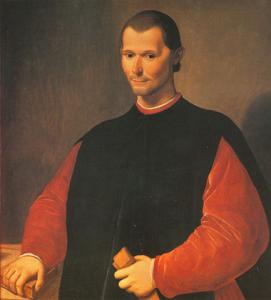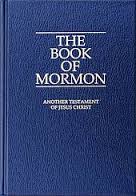“I seek not for power, but to pull it down. I seek not for honor of the world, but for the glory of my God, and the freedom and welfare of my country.” (Alma 60:36).
The announcement of Orrin Hatch’s retirement and President Monson’s passing as well as recent perusals of the political thought of Machiavelli has got me thinking about leadership and power. I previously posted on a similar topic:
The Greatest Day in American History
My favorite character in the Book of Mormon is Captain Moroni, the steadfast military commander that leads the Nephite nation through the ‘war chapters’. Moroni is the embodiment of the LDS ideal for leadership, particularly political or military leadership.
The quote above is from his epistle to Pahoran, the Chief Judge of the Nephite nation. Captain Moroni is struggling to defeat the Lamanite armies with little support – in arms and provisions – from the central Nephite government in the land of Zarahemla. Some 1800 years later, a general named George Washington experienced similar difficulties with an intransigent congress during the American Revolutionary War. Unlike Washington, Moroni threatens to turn his armies away from the Lamanites and direct them towards the government if he does not receive the arms and provisions he needs to defend the Nephite people from the invasion. But he makes it very clear that this threat does not stem from a lust for power. He does not desire Pahoran’s judgment seat. Moroni seeks “not for power, but to pull it down.” In particular, Moroni is seeking to pull down those who unjustly exercise their power.
Such a sentiment is deeply anti-Machiavellian. Of course, Machiavelli would seek Captain Moroni’s true motive (“humors”, as he would call them) underlying such a threat and would, no doubt, determine that Moroni was a “prince” seeking to command or dominate. Perhaps Machiavelli would even view Moroni’s words as a clever, ultra Machiavellian mask: a prince (who seeks to dominate) masquerading as a sheep (who seeks only not to be dominated).
Mormon, the prophet-historian recording the history of Moroni, confirms Captain Moroni’s honest intentions.
11 And Moroni was a strong and a mighty man; he was a man of a perfect understanding; yea, a man that did not delight in bloodshed; a man whose soul did joy in the liberty and the freedom of his country, and his brethren from bondage and slavery;
12 Yea, a man whose heart did swell with thanksgiving to his God, for the many privileges and blessings which he bestowed upon his people; a man who did labor exceedingly for the welfare and safety of his people.
13 Yea, and he was a man who was firm in the faith of Christ, and he had sworn with an oath to defend his people, his rights, and his country, and his religion, even to the loss of his blood.
16 … and this was the faith of Moroni, and his heart did glory in it; not in the shedding of blood but in doing good, in preserving his people, yea, in keeping the commandments of God, yea, and resisting iniquity.
17 Yea, verily, verily I say unto you, if all men had been, and were, and ever would be, like unto Moroni, behold, the very powers of hell would have been shaken forever; yea, the devil would never have power over the hearts of the children of men.
The question is whether Captain Moroni is truly sincere, whether a great souled man can have power – and the potential for more power – and yet not desire to wield is unjustly. That is, can any great souled man, any great leader of men, not fall into one of Machiavelli’s two categories? Can power ever not corrupt? Is there no third way between princes and the masses? Perhaps not. But if Moroni was a prince, he certainly wasn’t a very Machiavellian prince.
Savannah Johnston













